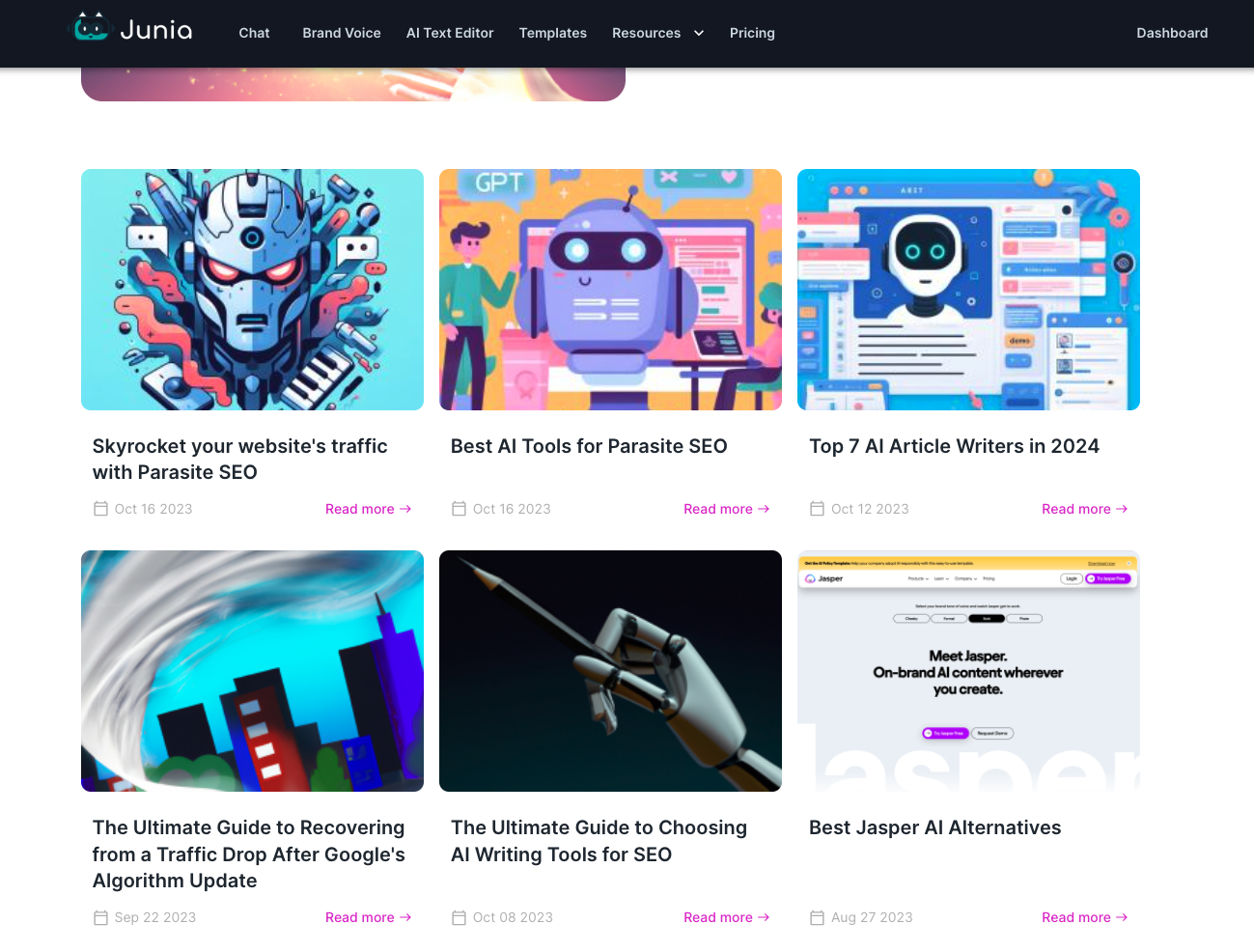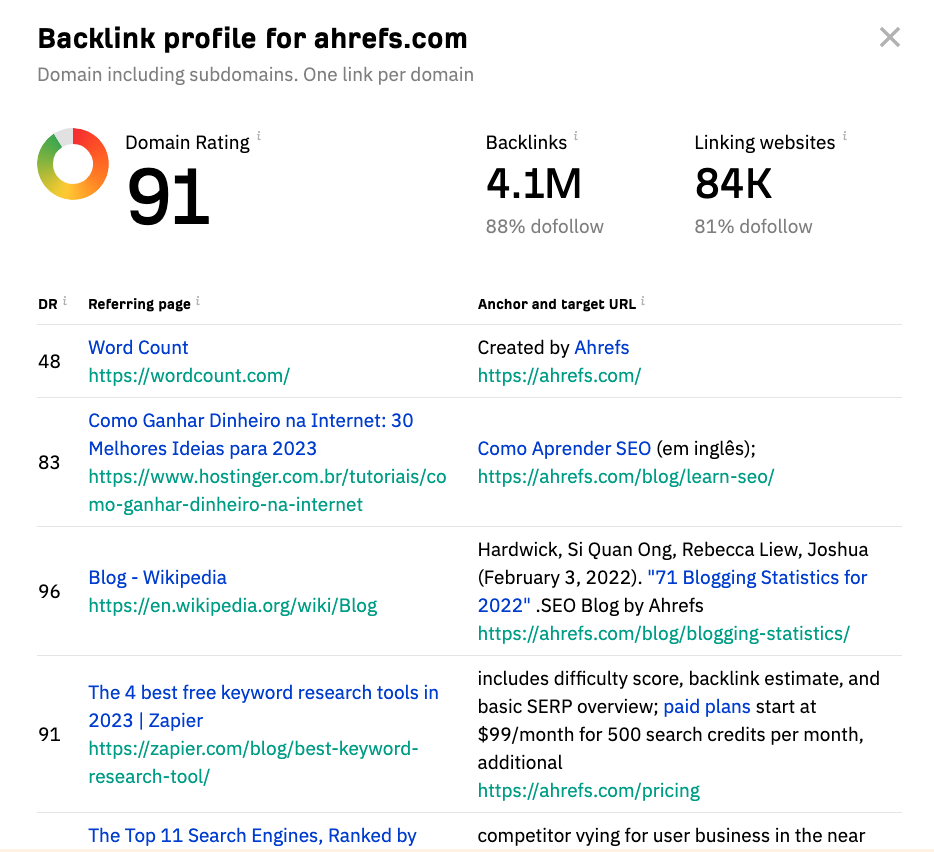
Introduction
In this article, we'll explore the concept of 'Authority Mode' and how it has evolved with Google algorithm updates. By the end of this article, you'll have valuable insights that can help improve your website's authority.
What is Authority Mode?
In simple terms, authority mode is like being the top player in your niche from the perspective of search engines. It's a state reached when your website becomes a beacon of trust, a go-to hub with high-quality content, and a brand that users rely on.
Characteristics of a Website in Authority Mode
A website in authority mode has the following characteristics:
- High-quality content that provides valuable information to users.
- A strong reputation and trustworthiness within the industry.
- A large and engaged audience of loyal followers.
- High visibility on search engines like Google.
- Increased organic traffic.
- Improved search engine rankings.
- Higher conversion rates.
Benefits of Being in Authority Mode
Being in authority mode comes with several benefits, including:
- Increased organic traffic: When your website is seen as an authority in your niche, more people will naturally find and visit your site through search engines, social media, and other online channels.
- Improved search engine rankings: Search engines like Google prioritize authoritative websites in their search results. This means that by establishing yourself as an authority, you have a better chance of ranking higher for relevant keywords.
- Higher conversion rates: When users trust your brand and see you as an expert in your field, they are more likely to convert into paying customers or take other desired actions on your site.
- Faster Indexing and Crawling: Search engines often prioritize crawling and indexing content from authoritative websites since they are considered reliable sources of information. This means that new content on your site will be discovered and indexed more quickly, leading to faster visibility in search results even in minutes!
Achieving authority mode takes time and effort, but the long-term benefits make it worthwhile.
The Evolution of Authority Mode
If you're an experienced professional in the world of Search Engine Optimization (SEO), you might be thinking, "Backlinks are the key to achieving authority status, right?" Well, that used to be true. However, let's pause for a moment. SEO has changed significantly recently.
Google's Algorithm Updates
Google frequently updates its algorithms to improve the user experience by promoting high-quality content and penalizing low-quality content.
"With Google’s recent algorithm updates (yes, they keep us on our toes!), the importance of backlinks in pushing a website into authority mode has taken a back seat."
This quote shows how these changes have affected traditional SEO strategies. The once-dominant role of backlinks in establishing website authority has been reduced.
The Changing Role of Backlinks
Don't get me wrong; backlinks are still important in SEO and can help your site become more visible. However, they are no longer the only factor determining your site's authority.
- Backlinks Still Matter: Backlinks from reputable sites can boost your credibility and increase your site's visibility. They serve as 'votes of confidence' from other sites, indicating that your content is valuable and worth linking to.
- But Not As Important As Before: The focus has shifted from quantity to quality. Having many backlinks from irrelevant or low-quality sites won't be beneficial anymore. Instead, Google now prioritizes high-quality, relevant links that provide value to users.
Ultimately, it's important to understand that you can improve your SEO without relying heavily on backlinks. The emphasis now is on creating high-quality content and delivering an excellent user experience. By embracing and adapting to these changes, you can ensure that your SEO strategy remains effective in the ever-changing digital world.
Characteristics of a Website in Authority Mode
The world of SEO is not for the faint-hearted. It demands strategic planning, consistent effort, and an unyielding commitment to quality. But what does it look like when all these elements come together? When a website steps into authority mode in SEO, it transforms into a powerhouse of credibility and influence. Let's delve into the defining characteristics that make a website an authority in its niche.
1. High-Quality Content

One of the pillars that prop up an authoritative website is high-quality content. This is not just about producing articles or blog posts regularly; it's about crafting content that resonates with your audience. Such content is:
- Informative
- Engaging
- Accurate
- Valuable
It's the type of content that not only answers questions but also sparks conversations.
An authoritative site will have content that encourages repeat visits and shares. One way to ensure this is through content clusters, where you create cornerstone articles on key topics in your niche and then link related articles back to this main piece. This creates an interconnected web of high-quality content that provides comprehensive information on different subtopics.
2. Strong Backlink Profile

Backlinks act as endorsements from other reputable sites. Having a strong backlink profile characterizes a website in authority mode as it signals search engines about its trustworthiness and reliability.
However, remember that all backlinks are not created equal. Quality trumps quantity when it comes to backlinks. Links from relevant, high-authority websites carry more weight than those from low-quality sites. So aim for earning links from reputable sites within your industry or niche.
3. Positive User Experience
A website in authority mode needs to be more than just information-rich; it has to be user-friendly as well.
Positive user experience includes factors such as:
- Easy navigation
- Fast load times
- Mobile responsiveness
These are the factors that contribute to a positive user experience. It's about creating a site that users love to visit, not just because of its content but also due to its design and functionality.
4. Social Proof

Just like a bestselling book or a hit movie, an authoritative website often has social proof as a testament to its value. This could come in the form of:
- Positive reviews
- Testimonials
- Mentions across different platforms
Imagine someone looking for recommendations on social media. If your website is mentioned multiple times by different users, it not only increases your visibility but also adds to your credibility - a key aspect of being in authority mode.
5. Visibility in Search Engines
Lastly, an authoritative website is one that commands visibility in search engines. It ranks highly for relevant keywords in search engine results pages (SERPs), indicating that search engines recognize the site as an authority in its field.
But how can you achieve this? A well-rounded SEO strategy that includes:
- On-page optimization
- Technical SEO
- Link building
can help you secure higher rankings and thus, better visibility.
To sum up, high-quality content, strong backlink profile, positive user experience, social proof, and visibility in search engines are the defining characteristics of a website in authority mode. These are not standalone elements but rather interconnected pieces of the same puzzle. They work together to build a website's reputation and respectability, helping it dominate its niche in the vast digital landscape.
Recent Changes in Authority Mode
If you've been following the world of SEO, you probably know that Google algorithm updates happen regularly. These updates shake things up and redefine what it means to be in authority mode in SEO. It's like playing a game where the rules change unexpectedly. But don't worry, because every change is an opportunity to adapt and become stronger!
Shift from Backlinks to Content Quality and Organization
In one of its recent updates, Google has subtly shifted its focus from backlinks to content quality and organization. Yes, you read it right! Backlinks might have become less important in determining your website's authority. Surprising but true! This doesn't mean that backlinks are completely irrelevant now. They still matter, but they aren't the only factor anymore.
Enter Content Topic Clusters with Internal Linking
Now, the new star strategy is none other than content topic clusters with internal linking. A powerful approach that can quickly boost your site's authority!
What Are Content Topic Clusters?
So, what does this mean exactly? Let me explain with my own experience. While trying to rank a website into authority mode, I discovered something amazing: by focusing on creating content topic clusters with strategic internal linking, I could make any published content rank on Google within minutes! Yes, minutes!
But what exactly is a 'content topic cluster'? Imagine it as a network of related content pieces on your website. At the center of this network is a comprehensive piece of content called pillar content. Then, the related subtopics or cluster content branch out from this pillar and are all linked together. That's it! You have a content topic cluster.
Benefits of Content Topic Clusters
This approach offers multiple benefits:
- User Experience: Clustered content provides an organized, easy-to-navigate information structure for users. They can hop from one related topic to another effortlessly, spending more time on your site in the process.
- SEO Boost: Internal linking within a content cluster helps Google understand the context and relationship between different pages on your site. This enhances your SEO and pushes your website up in the ranking game.
- Authority Building: By covering a topic thoroughly through interlinked content, you're proving to search engines (and users) that you're an expert in that niche by establishing E-A-T Principles. This expertise is key to achieving authority mode.
Example of a Content Topic Cluster
To illustrate, let's say you run a fitness website. Your pillar content could be a comprehensive guide on "How to stay fit". The cluster content could include related topics like:
- "Best exercises for staying fit"
- "Nutrition guide for fitness enthusiasts"
- "Importance of sleep in fitness"
Each of these articles would link back to the pillar content and to each other where relevant.
Climbing the Ladder of Authority Mode
Remember, climbing the ladder of authority mode isn't a piece of cake! It demands consistent efforts, strategic planning, and keeping up with these ever-evolving SEO trends. But once you reach the top, the view is worth it!
Tips for Becoming an Authority in Your Industry
To make your website a go-to source in your field, it's important to establish yourself as an authority. Here are some tips to help you achieve that goal:
Understand Your Audience
To become the go-to resource in your field, you need to understand your audience inside and out. This includes knowing their needs, pain points, and questions they're asking. It's about creating content that answers their queries and solves their problems.
Pro Tip: Use SEO tools like Junia.ai to identify the trending topics in your niche and tailor your content accordingly.
Focus on Quality
While it might seem tempting to churn out content after content, remember that quality triumphs over quantity every time. Google rewards websites that offer valuable, original, and in-depth content. So invest time in producing well-researched articles that provide value to your readers. This could be done using quality AI SEO Tools such as junia.ai.
Build a Strong Brand
Authority mode isn't just about having a highly optimized website; it's also about building a strong brand. This involves establishing a unique voice and personality that sets you apart from competitors.
Promote your brand across various platforms. Engage with your audience on social media, participate in industry forums, and use email marketing to keep them updated with fresh content and offers.
Organize Your Content
In light of recent changes in Google's algorithm, consider adopting a topic cluster model for organizing your content. This involves creating pillar pages (comprehensive guides on broad topics) linked to cluster pages (articles that cover subtopics in detail). Such internal linking structure signals Google about the semantic relationship between these pages, enhancing the authority of your website.
Pro Tip: Publish new content regularly to keep the topic clusters fresh and relevant.
Keep an Eye on Your Competitors
Keep an eye on what's working for your competitors. This doesn't mean copying their strategies but rather learning from them. Analyze their backlink profile, content strategy, and social media engagement. Use these insights to refine your own SEO strategy.
Stay Updated With SEO Trends
The digital landscape is ever-evolving with frequent updates in search engine algorithms. Staying updated with the latest trends is crucial to maintain your authority status.
Pro Tip: Subscribe to SEO blogs and newsletters like Moz, Search Engine Journal, and SEMrush for regular updates.
Build Relationships for Quality Backlinks
Although recent updates have reduced the importance of backlinks in determining a website's authority, they still play a significant role. Focus on building relationships with other reputable websites in your field. Guest blogging, collaborating on projects, or participating in industry events can help you earn quality backlinks.
Remember, dominating your niche in authority mode isn't a one-time task but an ongoing journey. It requires consistent efforts towards producing quality content, staying abreast with industry trends, and refining your strategies based on performance analytics and competitor actions. With patience and persistence, you'll soon see your website climb up the ranks of SERPs and establish itself as a trusted resource in your field.
Conclusion
In this article, we've explored deep into the world of SEO and shed light on the mystery that is authority mode. So why does all this matter? Why is striving for authority mode in SEO crucial? Well, because it translates to dominating your niche. It means being the first name users think of when they need information or services in your field. It implies trustworthiness and reliability.
Content Topic Clusters: Your Secret Weapon
Remember how we talked about content topic clusters? That's your secret weapon right there! By creating interconnected webs of related high-quality content revolving around a main topic (aka pillar), you are providing value while simultaneously boosting your site’s SEO performance.
User Experience: The Key to Happy Visitors
And let's not forget about user experience. A fast-loading, mobile-responsive website with intuitive navigation makes for happy visitors, which equals higher conversion rates.
Stay Relevant and Ahead of the Curve
Staying relevant is also key. Keep one eye on industry trends and one eye on updates from search engine algorithms. Being ahead of the curve means you're already halfway to the top.
So, there's our wrap-up. Authority mode in SEO is not a destination but a journey. It takes time, effort, and strategic planning to get there, but the rewards are worth it. So roll up those sleeves and start your journey towards becoming an authority in your niche. The sky’s the limit!
